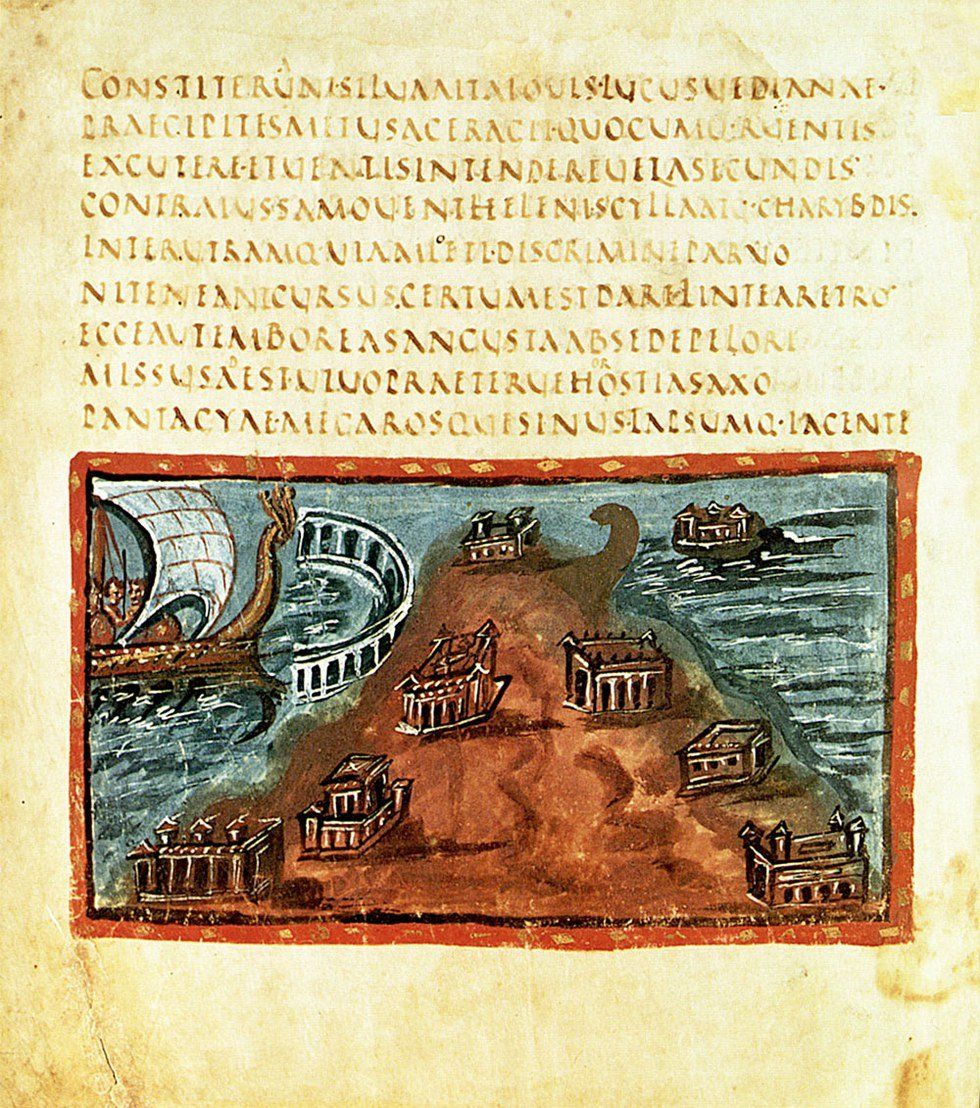What is the virtue present in studying a language that is no longer alive? Latin is all but obsolete, the strains of which can only be found in the words that we use with Latin derivations, some of which can only be found if you climb back down from the branches of English back to its Latin and Indo-European roots. Greek--at least the letters--still lives on in math formulas and chemical equations, but still seem out of place, like staring a wild animal separated by panes of glass and surrounded by fake plants. Even though Greek is still a spoken language, the modern dialect is so different from Attic that if they are just about two different worlds.
I’ve studied Latin for six years and Greek for just under two now. Deciphering these languages was frustrating, even grueling at times, yet I would rather have been lost in Latin than in English. I read Caesar, Cicero, Virgil, and Catullus, some of which I had read in English, yet it had never meant so much to me as delving into the language and pulling its meaning out myself. In Greek, I struggled through Herodotus, eventually stumbling over Sappho’s verse on my own. Soon I found myself belonging more to the classics than to the language I spoke and read every day. I wrote poetry and prose using rhetorical devices I’d learned from the classics, and I became obsessed with the ἅπαξ λεγόμενον (hapax legomenon, when a word is said only once in history and never again), wondering what had been lost by time.
Since then, I have hollowed out a home in language. Belonging in between the yellowed pages of In Catilinam or along the spine of The Aeneid is odd when you have so few roommates to share that space with. The only dialogues I had were with dusty old professors in commentary translations or the few people who were also studying to get a classical diploma with me. Why was I doing this to myself? Just to wear a laurel wreath on my head at graduation? Why was I studying a concept that had virtually no use (except for maybe a slightly higher SAT score)? Why couldn’t I have taken Spanish or even Italian? Near the end of senior year these questions came daily.
The use of a dead language seems close to zero from afar, especially in a world where the pressure to put every ounce of education to efficient use is present. However, I do believe the classics are useful. Every time the debate over the death of the humanities, I want to clutch my chest as though I have been shot and find the nearest fainting couch. Oh, the humaaaanities! The tragedy! The truth is that the classics present a very real, very human struggle. They are present in every moment of our lives--they're not dead, they're just invisible, like linguistic wallflowers. We talk about Shakespeare’s plays and sonnets and how they are still applicable in their portrayal of folly, humor, and politics; Latin and Greek are just the same. Catullus wrote entire cycles of poems about an on/off relationship with a woman who may or may not have had other lovers (or even known he existed); Antigone’s story is one of conflict between duty to the state versus duty to her family. The Greeks invented not only the word for philosophy, φιλοσοφία, but the actual idea itself--love of knowledge. Cicero’s politics and the Catiline conspiracy are interesting no matter what language you read them in, though I’ll admit I enjoy that satisfying feeling of translating a speech myself. Even if most days none of my classmates had any idea what a certain passage meant other than a jumble of syllables, we teased through the confusion together to the other side.
I’m not saying everyone should major in classics and pursue a career in Latin or Greek (but what a world that would be to live in!) I’m just saying to take a course or two. Check a book out on your topic of choice. Learn where your words come from, your sigma notation, your elemental abbreviations. You may learn to identify with the voices of the past just as you have with your favorite authors of the present.
For my eighteenth birthday, my mom decided that I could get my first tattoo. I’d known for a long time that I wanted at least two-one in Latin and one in Greek. If I’d given that much time of my life and energy to a language, and a dead one at that, I was going to put it on my own living skin. Even if I didn’t make a career out of it, I was going to carry the classics with me forever. The voices I had translated, voices we would never hear out loud, were forever in my head. Much of Latin is preserved in dusty truisms on university crests that bring to mind phrases one use to sound pseudointellectual--“excelsior,” “veritas,” et cetera ad nauseam. (See what I did there?) I wanted my own truism, my own reminder, something that would be mine.
I chose lux in tenebris, light in darkness. When people ask me what it means, what I answer depends on the day. The beautiful thing about Latin is that it says in a few words what English says in thousands. I tell them that it means the stars in the night, tiny pinpricks of light in overwhelming darkness that keep our little world illuminated. I tell them that it means Tolkien’s “through shadows to the edge of night/until the stars are all alight.” I tell them it means Dumbledore’s “Happiness can be found in the darkest of times if only one remembers to turn on the light.” I tell them it means “The good is always brighter than the bad.”
Later, on my mom’s birthday, we got matching tattoos on our right feet pointing forward--ad meliora, toward better things. We never look back to the dark times, unless it is to remind us to keep moving further. Towards the light. These little bites of language, tiny phrases, are like inked cups we can fill with our own rich meaning.
I think everyone should study Latin and Ancient Greek, even if it means a long and difficult return from the grave. Everyone should find their own meaning.




















